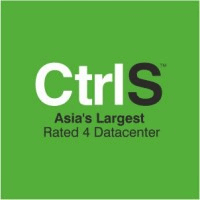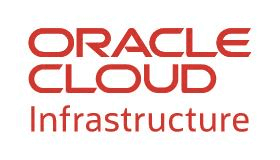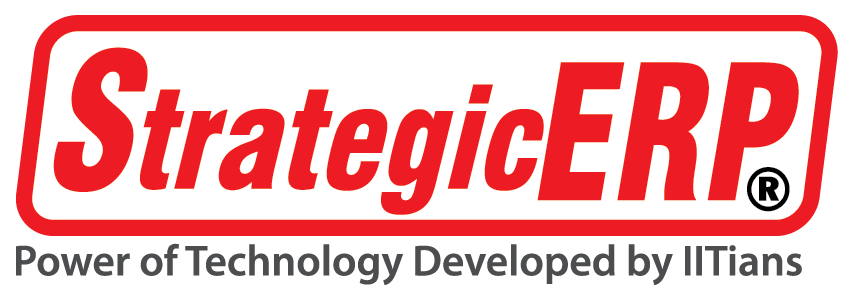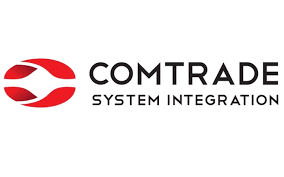Infrastructure software is designed to be available from a variety of devices and platforms, making it a flexible and adaptable solution for enterprises of all sizes. It can be viewed remotely via desktop computers, laptops, tablets, and smartphones, as well as various operating systems such as Windows, Mac, and Linux. This accessibility enables seamless integration and collaboration, which improves organizational efficiency and productivity.
List of 20 Best Infrastructure Software
BlueData EPIC software solution for seamless and efficient Big Data deployments. Eliminate infrastructure challenges and constraints that hinder progress with our cost-effective solution, reducing deployment costs by up to 75%. Experience unmatched s...Read More BlueData EPIC
Amazon EC2 - a versatile and expandable web service offered by AWS. This powerful tool allows you to effortlessly launch virtual servers, called instances, on demand. With a wide range of configurations to choose from, you can easily tailor your comp...Read More Amazon EC2
Linode is a leading provider of reliable and scalable cloud hosting and infrastructure solutions. Our virtual private servers (VPS) and other cloud-based offerings are trusted by developers, enterprises, and individuals to effortlessly deploy, manage...Read More Linode
CertHat solution for managing digital certificates from various PKI sources, including Microsoft Active Directory Certificate Services. Our web-based tools provide an intuitive interface for seamless management and monitoring of your organizations se...Read More CertHat
XIUS is a flexible and dynamic mobile software designed to provide seamless real-time transaction processing for Mobile Infrastructure, Mobile Commerce, and Over the Top Solutions. Our software offers customizable solutions to cater to your specific...Read More XIUS
CtrlS is a data center and managed hosting service, trusted by businesses and organizations. Our renowned platform offers robust infrastructure and comprehensive solutions, ensuring secure and reliable hosting for crucial applications and data. With...Read More CtrlS
Vultr is a versatile cloud infrastructure platform that offers a wide range of reliable solutions. With its global reach, users can easily launch virtual servers, storage, and networking resources, making it a popular choice for businesses and develo...Read More Vultr
Oracle Cloud Infrastructure is a robust cloud platform that offers a complete range of services for your IT requirements, from migration to application development and management. With industry-leading speed, security, and cost-effectiveness, it cate...Read More Oracle Cloud Infrastructure
Docusnap is a IT documentation software, trusted by countless professionals for its inventorying, documenting, and analysis capabilities. Our product utilizes automated processes to bring transparency and ease to your IT management. Experience Docusn...Read More Docusnap
NextNines Operational Technology Solution is the perfect defense against cyber threats that can harm critical infrastructure in industries like oil and gas, mining, chemical plants, electrical facilities, nuclear power, and defense. Our comprehensive...Read More NextNine
Alepo Software is a trusted provider of comprehensive IT and network infrastructure software solutions designed for global communications service providers. With a proven track record of successful partnerships with leading companies including Vodafo...Read More Alepo
StrategicERP-Real Estate ERP is a software tailored for the Real Estate and Infrastructure sectors. Created by skilled IIT alumni, it provides a flexible and innovative solution to cater to the unique business requirements of these industries. Boost...Read More StrategicERP-Real Estate ERP
Puppet, the premier Infrastructure Management Software that transforms the way you handle your infrastructure. With detailed audit trails and comprehensive reports, ensure accuracy and efficiency in every change made. Leave behind tedious manual task...Read More Puppet
Mavenoid is an innovative infrastructure software built for progressive businesses. It offers a comprehensive solution that enhances all facets of company operations, spanning from managing employees to conducting transactions. Developed by a team of...Read More Mavenoid
Squadcast solution for streamlined incident response. With our platform, tech teams can effortlessly implement SRE strategies to ensure optimum service reliability, accelerate innovation, and deliver exceptional customer satisfaction. Experience impr...Read More Squadcast
NIIT is a software company that offers extensive infrastructure management services to cater to a wide range of industries. Our solutions are of top-notch quality and designed to meet the ever-changing demands of the market. From planning to executio...Read More NIIT
CROC is a infrastructure software for businesses. With Private and Composite Cloud, CROC enables users to create personalized cloud environments utilizing their current virtual structures. By seamlessly integrating products from various vendors, this...Read More CROC
Softcell is a B2B IT infrastructure software solution tailored for enterprise clients. It offers a wide range of services, including computing, networking, storage, hosting, desktop and mobile device management, and software solutions. With Softcell,...Read More Softcell
the Comtrade System Integration software is a solution for businesses of all sizes. Our software offers consultation, design, and implementation services to seamlessly integrate your infrastructure. With a user-friendly interface and expert support,...Read More Comtrade
Learn More About Infrastructure Software
- What Is Infrastructure Software?
- What Are The Recent Trends In Infrastructure Software?
- Benefits Of Using Infrastructure Software
- Important Factors To Consider While Purchasing Infrastructure Software?
- What Are The Key Features To Look For In Infrastructure Software?
- Why Do Businesses Need Infrastructure Software?
- How Much Time Is Required To Implement Infrastructure Software?
- What Is The Level Of Customization Available In Infrastructure Software?
- Which Industries Can Benefit The Most From Infrastructure Software?
- Conclusion
What Is Infrastructure Software?
Infrastructure software is a collection of digital tools and applications used to manage and support the physical and network components of an organization's IT infrastructure. It is a critical component of a strong and efficient technology ecosystem, acting as the foundation for the seamless operation of all associated systems. Infrastructure software, sometimes known as "middleware," acts as a link between the physical infrastructure and the software applications that it supports.
It allows for the communication and sharing of resources between various devices and systems, facilitating the flow of data and information inside an organization. Infrastructure software includes a diverse set of solutions, including operating systems, virtualization software, network management tools, database management systems, and security software.
These solutions work together to automate and simplify complicated IT activities including data storage, server management, and network monitoring. This software not only supports the key infrastructure components, but it also helps to ensure the security and stability of an organization's IT environment. This includes managing access control, data protection, and disaster recovery to avoid cyber threats or system breakdowns.
Infrastructure software has become a critical investment for businesses of all sizes and industries as they rely more heavily on technology. It enables firms to be competitive and nimble in a fast changing digital landscape, laying the groundwork for business operations and growth. Understanding your specific infrastructure requirements and analyzing the features and capabilities of various software solutions is critical for you as a customer.
To improve efficiency and productivity, select a robust and scalable infrastructure software that can adapt to your organization's changing needs while easily integrating with your current systems. In today's digital age, making the proper option can help you streamline company operations, improve security, and remain ahead of the competition.
What Are The Recent Trends In Infrastructure Software?
In recent years, we've seen a tremendous change in how firms manage their infrastructure. Infrastructure software has become a vital instrument for efficient and effective infrastructure management as technology has advanced and there is a greater demand for continuous operation. The trend toward automation is one of the most prominent in infrastructure software.
With the rise of DevOps and Agile approaches, businesses are seeking ways to streamline operations and reduce manual processes. Infrastructure software that provides automated features, such as server provisioning and configuration management, is in great demand. Another trend is the increased use of cloud-based infrastructure software. As more businesses migrate to the cloud, they are increasingly relying on cloud-based infrastructure software to manage their systems.
This enables greater scalability, flexibility, and cost-efficiency, making it a popular choice among purchasers. Furthermore, artificial intelligence and machine learning are increasingly being used in infrastructure software. These systems can evaluate data, forecast possible problems, and provide proactive recommendations for optimization. This not only improves performance, but also lowers downtime and expenses.
Furthermore, security is a major priority for businesses when it comes to infrastructure. As a result, infrastructure software that includes advanced security capabilities like threat detection and real-time monitoring is becoming increasingly popular. With businesses collecting an increasing amount of data, data management has emerged as a vital component of infrastructure management. As a result, there is an increasing demand for infrastructure software that includes data integration and analytics features.
Benefits Of Using Infrastructure Software
Infrastructure software is a critical component for any business or organization seeking to improve and optimize its operations. This powerful software category comprises a variety of tools and platforms for managing and optimizing a company's IT infrastructure, such as servers, networks, and databases.
In this buyer's guide, we will look at the advantages of adopting infrastructure software, allowing you to make an informed decision when choosing the best option for your business.
1. Improved Efficiency And Productivity: One of the most major advantages of employing infrastructure software is its capacity to streamline and automate various operations, resulting in increased efficiency and productivity. Infrastructure software, which includes features such as centralized management, automated backups, and real-time monitoring, saves time and effort on everyday activities, allowing your IT team to focus on more important initiatives.
2. Cost Reduction: Investing in infrastructure software can result in significant long-term savings. By streamlining and automating processes, you reduce the need for manual work and eliminate the danger of human error, saving your company time and money. Furthermore, by offering visibility into your IT infrastructure, infrastructure software assists in identifying inefficiencies and potential cost-cutting opportunities.
3. Improved Security: Data security is a primary priority for every business, and infrastructure software plays an important role in safeguarding your data. It helps to prevent unauthorized access, data breaches, and cyber-attacks by providing features such as data encryption, access controls, and real-time threat detection. Its strong security features also assure compliance with industry rules, providing you peace of mind and safeguarding your reputation.
4. Scalability: As your company expands, so does the demand for a strong IT infrastructure. Infrastructure software provides scalability, allowing you to extend and adjust your infrastructure to match your organization's changing needs. Infrastructure software enables seamless scalability without affecting your operations, whether you add new servers, increase storage capacity, or upgrade software.
5. Centralized Management: Managing many servers, networks, and databases can be difficult without the proper tools. Infrastructure software provides a consolidated platform for controlling all aspects of your IT infrastructure, offering your IT team a comprehensive picture of your systems and allowing them to make informed decisions. This centralized method saves time and effort by allowing modifications to be made through a single interface.
Important Factors To Consider While Purchasing Infrastructure Software?
When it comes to acquiring infrastructure software, a few essential elements should be considered to ensure that you make the greatest option for your company.
Here are some crucial aspects to consider while searching through the options:
1. Compatibility: The first and most important element to evaluate is if the program is compatible with your current infrastructure. To prevent technical challenges, choose a solution that will smoothly integrate with your existing systems and processes.
2. Scalability: As your firm expands, your infrastructure requirements will change. As a result, it is critical to choose software that is scalable and can meet your future requirements without causing big interruptions or needing large investments.
3. Reliability And Support: When it comes to infrastructure software, dependability is critical. You want a solution that is stable and dependable, with minimal downtime. Additionally, verify the level of customer care provided by the software vendor, as you may require assistance with technical issues or updates in the future.
4. Features And Functionality: Before deciding on a program, critically assess its features and functionalities to ensure that it meets your business requirements. Consider which features are crucial to your operations and prioritize them accordingly.
5. Security: Given the growing number of cyber threats, security should be a key focus while choosing infrastructure software. Make sure to thoroughly evaluate the security procedures and protocols implemented by the supplier to protect your systems and data.
6. Cost: While price should not be the only deciding factor, it is crucial to analyze the software's cost as well as its potential ROI. Examine the pricing structure to see whether it fits within your budget and whether the features and advantages outweigh the cost.
7. Usability: Employees should be able to simply learn and navigate the product. Complicated and time-consuming software can reduce productivity and increase the likelihood of errors.
8. Integration With Other Systems: It is usual for firms to utilize a variety of software and systems, thus it is critical to evaluate how the infrastructure software works with them. This will help to reduce duplication of effort and maintain smooth operations. Keeping these crucial elements in mind will allow you to make an informed decision and select the best infrastructure software for your organization, meeting both present and future needs.
What Are The Key Features To Look For In Infrastructure Software?
When considering infrastructure software, it is critical to examine many essential features to guarantee you get the best option for your business.
These features include the following:
1. Scalability: Infrastructure software should be able to scale up and down to meet changing demand. This is especially crucial for developing businesses or those with fluctuating consumption.
2. Compatibility: The software must be compatible with your current systems, applications, and hardware to allow seamless integration and operation.
3. Reliability: Look for software with a history of dependability and little downtime. This is critical for delivering consistent results and preventing costly disruptions.
4. Security: Given the growing threat of cyber attacks, security should be the top consideration while selecting infrastructure software. Encryption, firewalls, and regular upgrades are all features that can help safeguard your data and systems.
5. Management And Monitoring Tools: The software should include powerful management and monitoring capabilities that will allow you to successfully oversee and maintain your infrastructure. This includes tools like performance monitoring, configuration management, and scheduled backups.
6. Flexibility: The software should be adaptable enough to your specific business requirements and allow for customization as needed.
7. Support And Updates: Think about the degree of support and updates provided by the software vendor, as well as any additional expenses. It is critical to have access to fast assistance and receive regular updates to ensure that your infrastructure runs smoothly. When selecting infrastructure software to support and enhance your business operations, keep these crucial qualities in mind to make an informed decision.
Why Do Businesses Need Infrastructure Software?
Businesses require infrastructure software because it acts as the foundation for their operations, allowing them to provide efficient and dependable service to their consumers. This sort of software comprises a wide range of tools and applications that assist businesses in managing their IT infrastructure, such as servers, networks, and databases. One of the primary reasons why firms use infrastructure software is to ensure smooth and ongoing operations.
This software streamlines and automates operations, letting firms to manage enormous amounts of data and tasks more effectively. Businesses can use infrastructure software to reduce the likelihood of downtime, improve system performance, and increase overall productivity. Furthermore, infrastructure software helps organizations maximize their resources and cut costs.
Businesses may make better decisions and save money by automating manual procedures and offering real-time analytics. This is especially crucial for firms that must manage a complex IT infrastructure, since the correct software may help them optimize processes and cut wasteful costs. Another critical component of infrastructure software is its ability to secure company data.
This sort of software contains security technologies that defend against cyber threats and maintain the integrity and confidentiality of sensitive data. With an increasing number of cyberattacks targeting organizations of all kinds, investing in infrastructure software is critical for protecting a company's assets and reputation. Furthermore, infrastructure software is crucial in enabling corporate development and scalability.
As businesses grow, their IT infrastructure gets more sophisticated, necessitating software that can handle the increased demand. Infrastructure software enables firms to scale their operations without causing substantial disruptions, enabling continuous growth and satisfying client demands.
How Much Time Is Required To Implement Infrastructure Software?
The implementation time for infrastructure software varies widely based on the individual program, the organization's goals, and the level of customization necessary. On average, the implementation procedure can last from a few weeks to several months. One of the most important elements influencing implementation time is the size and complexity of the organization's existing infrastructure.
If various systems and technologies must be integrated with the program, the implementation process may take longer to accomplish. Another crucial issue is the extent of modification required to ensure that the program meets the organization's specific demands. Prebuilt solutions may take less time to execute than highly customized ones.
It is also worth noting that internal considerations such as the availability of in-house IT staff and the level of software training and support can all have an impact on installation time. To guarantee a seamless and timely deployment process, organizations must collaborate closely with their selected software vendor and set clear timetables and expectations. The implementation time for infrastructure software can be effectively calculated and planned for by first thoroughly knowing the organization's needs and taking into account the elements described above.
What Is The Level Of Customization Available In Infrastructure Software?
Infrastructure software refers to a variety of technological solutions that assist firms in managing and supporting their IT infrastructure, which includes servers, networks, and storage systems. These software solutions are critical for businesses to ensure that their IT systems function properly and efficiently. One essential factor to consider when selecting infrastructure software is the level of flexibility provided.
This refers to the software's ability to be customized to meet the unique demands and requirements of a business. In other words, can the software be customized or adapted to match the specific infrastructure requirements of your organization? The level of flexibility offered in infrastructure software varies by tool and vendor. Some software may have limited customization options, but others may have more advanced features.
Before making a purchase, you should understand the level of customisation offered and how it fits into your business needs. The extent of customization in infrastructure software is mostly determined by the underlying technology, the provider's knowledge, and the software's architecture. Some software may have a modular or plug-and-play architecture, which allows for easy customization and the addition of new functionality as needed.
On the other side, older or monolithic systems may be more difficult to customize. When considering customisation, it is critical to analyze the software's scalability. As your company expands, your infrastructure requirements may vary, and you want software that can adapt and evolve alongside your firm. A highly customizable software solution can be scaled up or down to meet your changing infrastructure requirements, saving you time and resources in the long term.
Another crucial factor to consider is the assistance and resources available for customisation. Some suppliers may give user-friendly interfaces or development kits that facilitate customisation, whilst others may need programming experience. To ensure that the customizing process goes smoothly, it is critical to understand the amount of support and resources available.
In addition to altering features and functionality, infrastructure software can be adjusted to satisfy specific security and compliance requirements. This includes setting up access controls, encryption mechanisms, and data storage procedures. With the rise of cyber risks and data privacy rules, businesses must be able to tailor their security measures accordingly.
Which Industries Can Benefit The Most From Infrastructure Software?
Infrastructure software, often known as IT infrastructure management software, is a type of software that manages and optimizes a company's entire infrastructure. This includes managing networks, servers, apps, data storage, and other IT assets. While infrastructure software benefits firms in a variety of industries, certain industries gain the most from its features and capabilities.
Let us look at these businesses and how they might profit from investing in infrastructure software.
1. Healthcare: The healthcare business relies largely on technology and data to deliver high-quality patient care. Infrastructure software enables healthcare businesses to successfully manage their IT infrastructure, ensuring secure and efficient data storage, network administration, and application management. This not only improves patient care but also assures adherence to data privacy requirements.
2. Finance: The finance business handles a lot of sensitive data, therefore having a strong IT infrastructure is critical. Infrastructure software enables financial institutions to efficiently manage their IT resources, assuring data security and compliance with industry rules. It also enables scalability, which is critical for financial institutions to meet ever-changing market demands.
3. Manufacturing: In the manufacturing industry, IT infrastructure is critical to guaranteeing smooth operations and productivity. Infrastructure software streamlines procedures, improves supply chain management, and monitors equipment performance. This results in increased productivity and cost savings for industrial companies.
4. Retail: E-commerce is becoming more popular, making IT infrastructure management vital in the retail industry. Infrastructure software is critical to the seamless operation of retail enterprises, ranging from inventory and logistics management to online payments and consumer data. It also enables firms to expand their online operations without affecting their IT infrastructure.
5. Education: Institutions deal with massive volumes of data, ranging from student records to online learning platforms. Infrastructure software enables educational institutions to effectively manage and safeguard data, as well as streamline their IT operations. It also supports remote learning and collaboration, which are critical in today's digital world.
Conclusion
To summarize, investing in infrastructure software is critical for firms trying to streamline operations, improve efficiency, and remain competitive in today's fast changing market. With so many options available, customers must carefully assess their unique wants and requirements before purchasing. By properly assessing the features, compatibility, and pricing of various software solutions, customers can make an informed purchase that corresponds with their business goals and objectives.
Customer service, security measures, and scalability are all key considerations, as is extensive research on vendor reputation and customer feedback. Furthermore, it is essential that you choose software that is flexible, customizable, and easy to integrate with current systems. This will enable firms to adapt and evolve as their demands shift over time.
Finally, investing in infrastructure software can give considerable long-term benefits and ROI to firms, resulting in increased productivity, cost savings, and customer happiness. We hope our buyer's guide was helpful in your decision-making process, and we wish you luck in selecting the best infrastructure software for your firm.
Infrastructure Software FAQ's
Can Infrastructure Software Be Accessed Across Multiple Devices And Platforms?
Is Infrastructure Software Future-Proof And Adaptable To Emerging Technologies Like AI, Blockchain Or IoT?
Infrastructure software is constantly evolving to keep up with emerging technologies like as artificial intelligence, blockchain, and the Internet of Things. It is designed to be versatile and future-proof, so it can integrate with new technologies as they emerge.
Infrastructure software allows firms to improve processes, increase productivity, and remain competitive in an ever-changing digital market by capitalising on these advancements. So you can be confident that infrastructure software will remain relevant and responsive to new technologies.
Is There A Free Trial Offered To Assess Infrastructure Software Before Committing?
Yes, many infrastructure software providers provide free trial periods to prospective clients. These trials are often limited in duration and allow customers to test the software's features and functionality before committing to a paid subscription. This helps consumers to determine whether the product satisfies their requirements and is worth the investment. It is recommended that you take advantage of these free trials to confirm the software is a good fit for your infrastructure requirements.
Does Infrastructure Software Offer Data Security Features And Meet Regulatory Compliance Standards?
Yes, one of the key functions of infrastructure software is to assure data security and compliance with regulatory requirements. It incorporates encryption, access restrictions, and monitoring to safeguard data from cyber attacks while also meeting regulatory standards.
In addition, these softwares are audited and updated on a regular basis to ensure compliance with changing legislation. As a result, infrastructure software provides a safe and compliant foundation for storing and managing data.
Can Infrastructure Software Integrate Seamlessly With Existing Tools And Platforms?
Yes, Infrastructure Software is designed to work easily with existing tools and platforms. With the rapid advancement of technology, organizations need a broad variety of tools and systems to effectively manage their infrastructure.
As a result, infrastructure software is designed to be compatible with a variety of operating systems and readily linked with other applications and platforms, giving a unified and simplified solution for managing complicated activities and processes. With this integration capacity, infrastructure software becomes a crucial tool for firms looking to improve their infrastructure management capabilities.






















